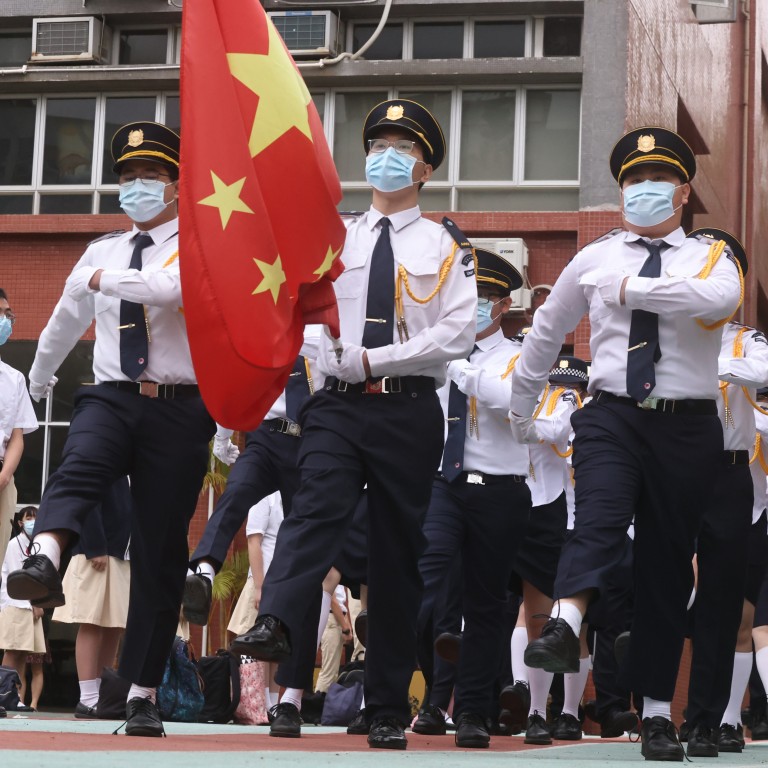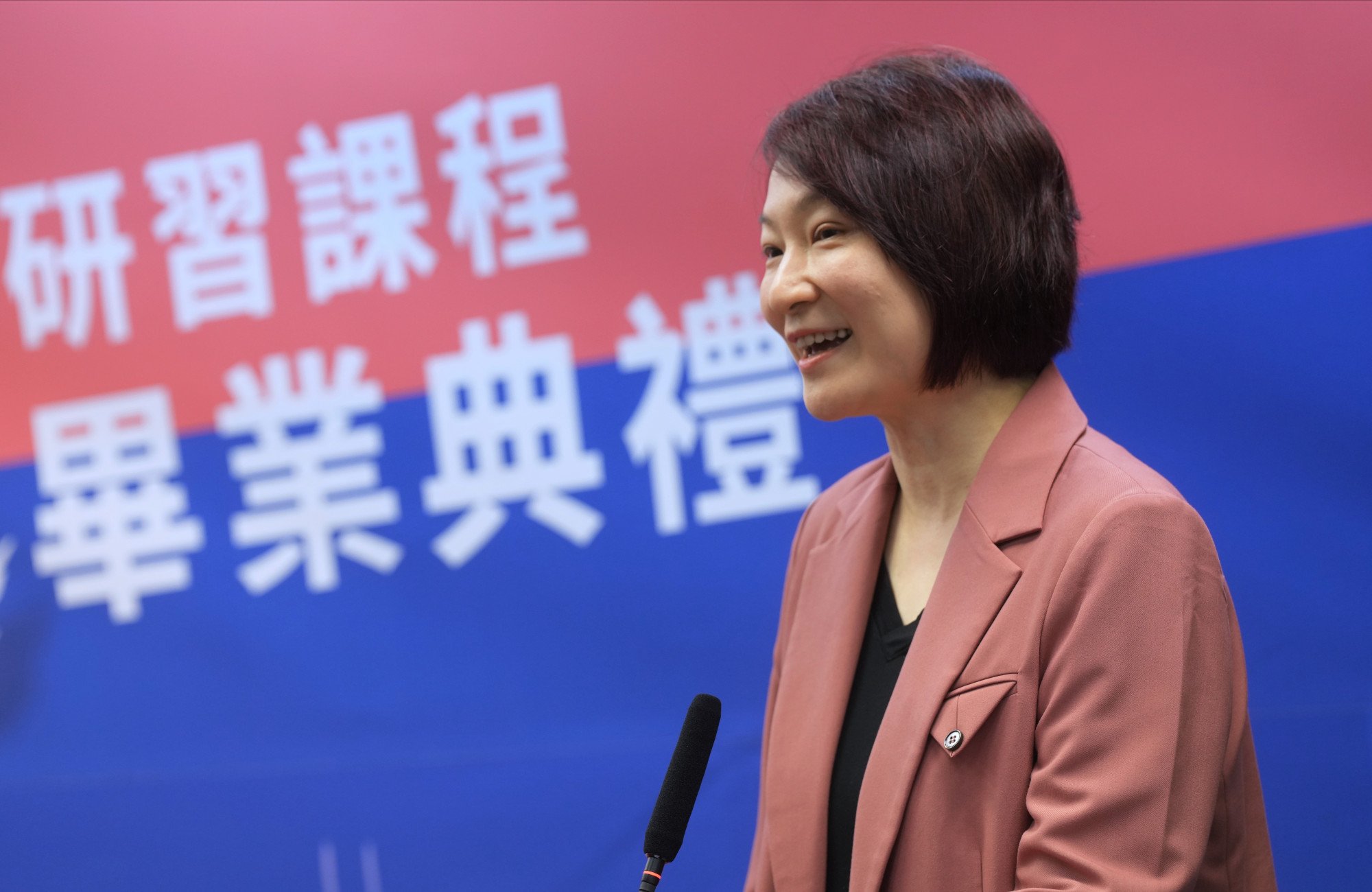
Hong Kong to set up ‘high-level unit to promote patriotic education’ in response to new national law passed on Tuesday
- Chief Executive John Lee will announce establishment of new coordination unit to promote patriotic education when he delivers policy address, source says
- National People’s Congress Standing Committee passes bill laying down content, goals, guiding principles and leadership mechanism for patriotic education
Hong Kong authorities will set up a high-level unit in response to a new national law passed on Tuesday that lays down goals and guiding principles to boost patriotism across the country, the Post has learned.
The government would also set up a new office to promote traditional Chinese culture and a museum to commemorate the city’s resistance against Japanese occupation during the second world war, the source said.
The new initiatives were made to conform with the patriotic education bill passed by top legislative body the National People’s Congress (NPC) Standing Committee on Tuesday.
Hong Kong leader to unveil HK$20,000 handouts for newborns in policy address
The bill was drafted to lay down content, goals, guiding principles and a leadership mechanism for patriotic education, as well as the duties of departments involved.
Lee said the administration would coordinate various government and patriotic forces to promote such education, “so as to let the public better understand the country’s history, cultural background, rapid development and close ties between the mainland and Hong Kong”.
According to state news agency Xinhua, the new law has 40 articles in five chapters and also spells out the role of schools and families in implementing patriotic education.
The law will come into effect on January 1 next year and covers those in Hong Kong, Macau and Taiwan, as well as Chinese people overseas.
‘Hong Kong teachers, students must defend national security under patriotic bill’
Starry Lee Wai-king, the sole local delegate to the NPC Standing Committee, said after the vote on Tuesday that Beijing would closely monitor Hong Kong’s implementation of patriotic education even though the city was not legally required to enforce the new law.
It would not be added to Annex III of the Basic Law, Hong Kong’s mini-constitution, she said, meaning the city’s government would not be asked to enact local legislation on it.
Article 18 of the mini-constitution states that national laws shall not apply in Hong Kong except for those listed in Annex III.

Asked if Hong Kong would face any consequence if it failed to do its part in promoting patriotism, Lee stressed that the city was under scrutiny on delivering results in this regard.
“There was no specific discussion on how Hong Kong should implement patriotic education among national lawmakers. But I believe leaders who oversee Hong Kong affairs will pay close attention to see if Hong Kong has done its job,” she said.
Lee said the law stipulated that the country would take measures to boost Hongkongers’ recognition of Chinese culture and consciousness to safeguard national unity.
She also said she “highly” anticipated the high-level group to be set up by the city government, as implementing patriotic education required not only the Education Bureau, but also interdepartmental efforts.
Hong Kong not obliged to apply new national law on patriotic education: Starry Lee
“We are not just to teach the children, but also all residents in the city,” she said.
Professor Lau Siu-kai, a consultant with semi-official think tank the Chinese Association of Hong Kong and Macau Studies, said the core of the new law was to encourage residents to support and uphold the Communist Party.
“It is especially important to raise Hong Kong people’s understanding and respect towards the party. The Hong Kong government and patriotic organisations should play a key role in it, ” Lau said.
“It is also necessary for Hong Kong people to undergo patriotic education to understand their responsibility in safeguarding national security and ethnic unity. It is crucial to prevent Hong Kong from becoming a base for subversion, destruction, and infiltration.”
Hong Kong teachers ask Beijing for more freedom to implement patriotic education
For instance, he said, kindergarten pupils should learn how to sing the national anthem by the time they had graduated.
Education sector lawmaker Chu Kwok-keung argued that authorities should gauge views from the school sector before rolling out more initiatives on this front.
“The workload for schools on national education has already been quite heavy. It is time to review how to improve its quality instead of quantity,” he added.


